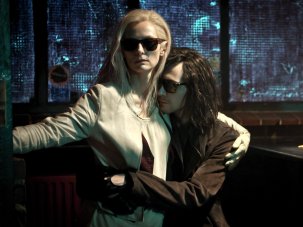Web exclusive
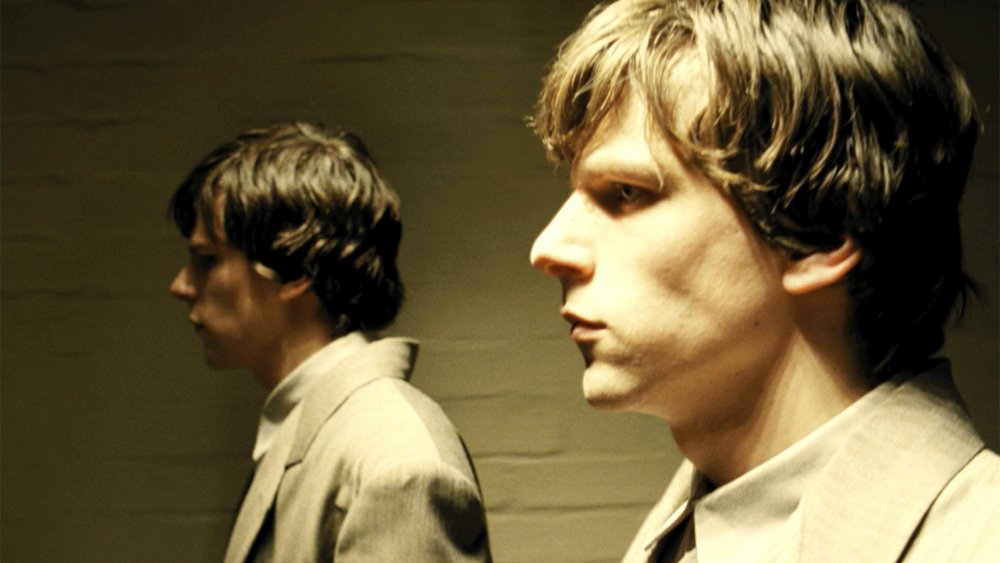
Jesse Eisenberg in Richard Ayoade's The Double
Jesse Eisenberg was nominated for an Oscar for playing Facebook founder Mark Zuckerberg in The Social Network (2010) and has a blossoming career as one of US indie cinema’s favourite male leads. In interview, though, he gives the impression that he is far prouder of the humorous pieces he writes for the New Yorker than of his filmmaking credits.
 The Double screens in the London Film Festival on Saturday 12, Sunday 13 and Monday 14 October. Night Moves screens on Tuesday 15, Wednesday 16 and Thursday 17. |
“I’d been submitting to them [the New Yorker] for years,” he says of the long period he spent accumulating rejection slips from one of America’s most revered publications. Then, finally, the magazine began to accept his work and he became a regular contributor.
“It takes years to break through there,” he sighs. “It’s the only magazine I know that doesn’t have a famous person on the cover. It has some kind of literary integrity that is appealing to me, and a history that is unparalleled.”
Eisenberg had spent a small eternity trying to find his voice as a humorous writer. “I [now] write every day, but it was a long process finding out what I do well. I had a lot of great discouragement when I would write jokes all the time, then was finally told by this comedian Bob Odenkirk that what I was writing was terrible and that [my writing] should be more personal. It changed my life – it’s a moment every creative person has when they realise that what they were doing was exactly wrong for them, and when they find the thing they really excel.”
The actor has two new films premiering at the London Film Festival. In Kelly Reichardt’s Night Moves, he plays Josh Stamos, a sullen environmental activist with a hint of Raskolnikov about him. Josh takes part in an act of eco-terrorism, blowing up a hydroelectric dam, then resorts to further violence and subterfuge to keep ahead of the law. His motives, which initially seemed very idealistic, become increasingly muddied.
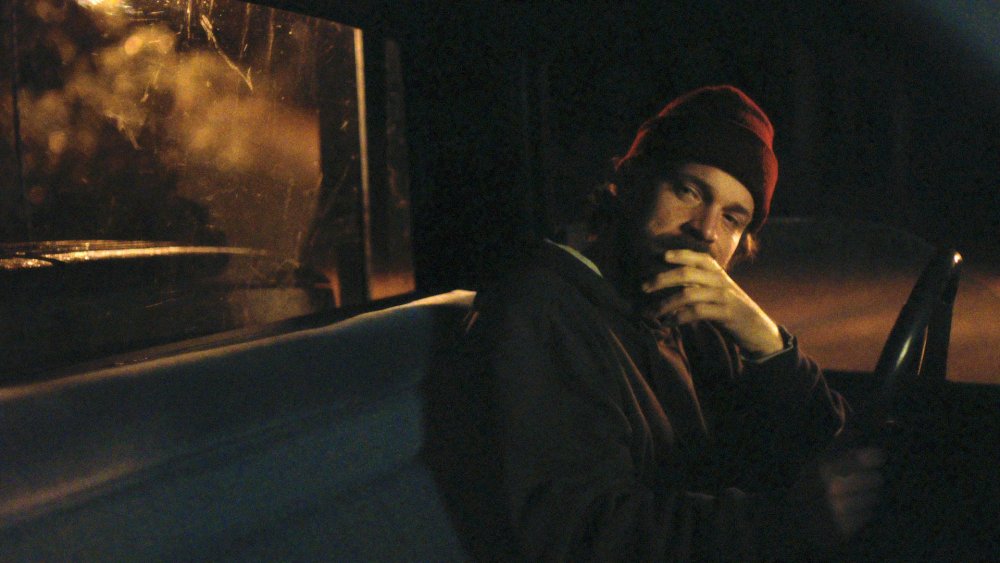
Night Moves
“I like that the character didn’t speak, but I also felt concern that he wouldn’t be able to express himself. Then I realised that this is a character who not only doesn’t express himself but buries everything he thinks or feels until there’s just an explosion of violence,” Eisenberg says. “That was the interesting way into the character, thinking about a guy who, every time he has a thought or feeling, instead of expressing himself and relieving himself of the feeling, he buries it inside himself. By the end, he becomes very violent.”
While Night Moves has Dostoevskian elements, Richard Ayoade’s The Double is a Dostoevsky adaptation for real. Loosely adapted from the Russian writer’s 1846 novella, it’s a comedy about a man tormented by his own doppelgänger.
“I thought it was very funny. It takes place in this dystopian world. It’s about this meek businessman in this big bureaucracy, and then his life is overtaken by his doppelgänger. The first character I play, no one likes. The world seems against [him] so much so that when he walks into an elevator, the doors don’t open for him. Then my other character comes in and everybody seems to love this guy for no reason. They look exactly the same, they have exactly the same outfit. It’s a really strange and surreal story. It has this strange, dystopian existential humour, rather than some kind of broad comedic humour like an Adam Sandler two-character thing.”
Eisenberg describes The Double as “the most interesting experience I’ve ever had,” lavishing praise on Ayoade’s visual and comic imagination. The British director had the knack of making even the most banal scene – a character walking down a hall with a little gift in his hand – seem phantasmagoric.
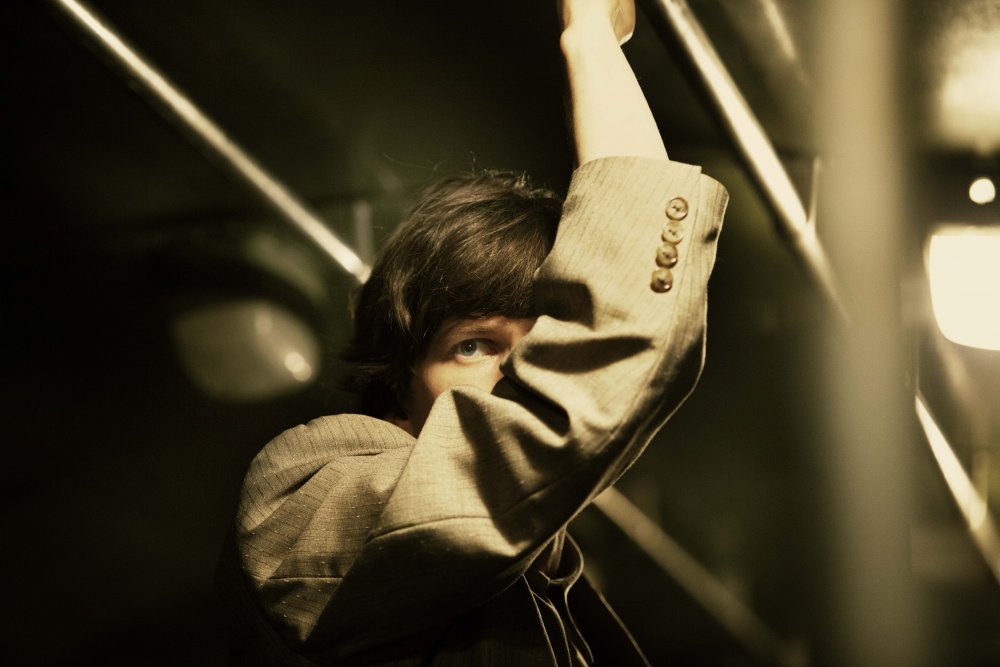
The Double
The New York-born and based Eisenberg made his movie debut as the teenage nephew of the obnoxious seducer played by Campbell Scott in Dylan Kidd’s barbed comedy drama Roger Dodger (2002).
“He [Scott] taught me a lot about film acting. I just got very lucky because I learned from the best,” Eisenberg remembers. “That’s the best training ground.”
Eisenberg is less sure about what he learned in acting classes. At one stage, he studied the works of Uta Hagen (the original Martha in Who’s Afraid Of Virginia Woolf?). “The only thing I really remember from her teachings is that if you have to play a character who’s stoned, you have to picture that there’s a balloon inside your head. It really works. I’ve had to do that a few times and I think that’s the best acting lesson I ever got!”
On screen, Eisenberg is equally adept at playing Holden Caulfield-like outsiders, dreamy student types experiencing first love (Adventureland) and darker, more manipulative figures like Zuckerberg.
“I like playing characters who are emotional but I don’t always have the opportunity,” he says. “I like to play characters with an intense emotion because it’s easier to navigate them. It’s difficult for me to play characters that are very casual. I just don’t know what to do, really.”
The actor is dryly sardonic about the research he did for Night Moves.
“I went out early and lived in a yurt that my character lives in and worked on the farm,” he says.
For how long?
“About six years, just really to feel it. My character would have been there for five years but I thought I should just give it one more year, just out of a general sense of dedication.”
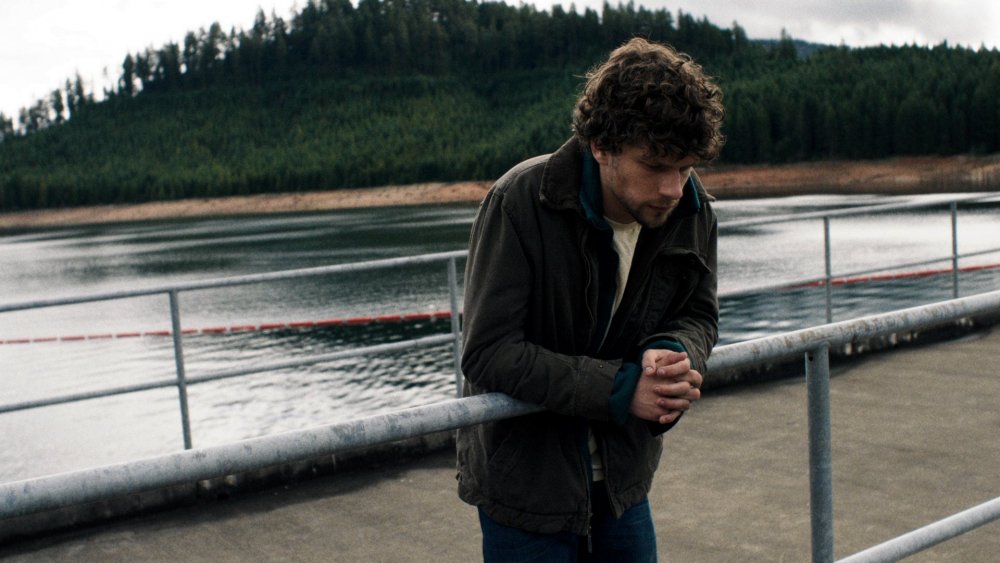
Night Moves (2013)
In fact, Eisenberg clarifies, he spent two weeks on the organic farm. “It was interesting because the thing you immediately understand is how slow everything goes,” he notes of his time on the remote farm in the Midwest. “I was coming from New York City, where I ride a bicycle everywhere and everything is immediately accessible. When you live on a yurt and work on a farm, just to get to the bathroom is, like, ten minutes. Everything slows down. You end up only going to pee when you really have to. You make trips that are necessary. As opposed to living in a tiny apartment in New York City, where you’re four feet from your bathroom.”
In playing Josh, Eisenberg learned to “slow down”, taking his tempo from day-to-day life at the farm and behaving in a very deliberate and methodical way. “When I was living on the farm, I realised the reason for my character’s behaviour. When you’re planting the food that you eat, you have a greater appreciation not only for the planting of it but for the eating of it. It just changes your perception of man’s interaction with nature. You start to appreciate nature because you are using it for practical reasons.”
Josh doesn’t just appreciate nature. He is also determined to defend it, “almost sacrificing his life for it.”
It’s little surprise that Eisenberg cites Woody Allen’s Crimes and Misdemeanors as one of his favourite films. He cites with special admiration the scene toward the end of the film when Judah (Martin Landau) and Cliff (Woody Allen) meet by chance. The former is responsible for someone’s murder. “He walks off with a clear conscience while the other character is left stuck in his own prison, but he has done nothing explicitly wrong. It’s a chilling moment in an otherwise comedic story.”
Eisenberg has a few things in common with Allen: both are writers, humourists – New Yorker contributors – and directors. He also shares some of Allen’s neurotic energy. They worked together on To Rome with Love (2012).
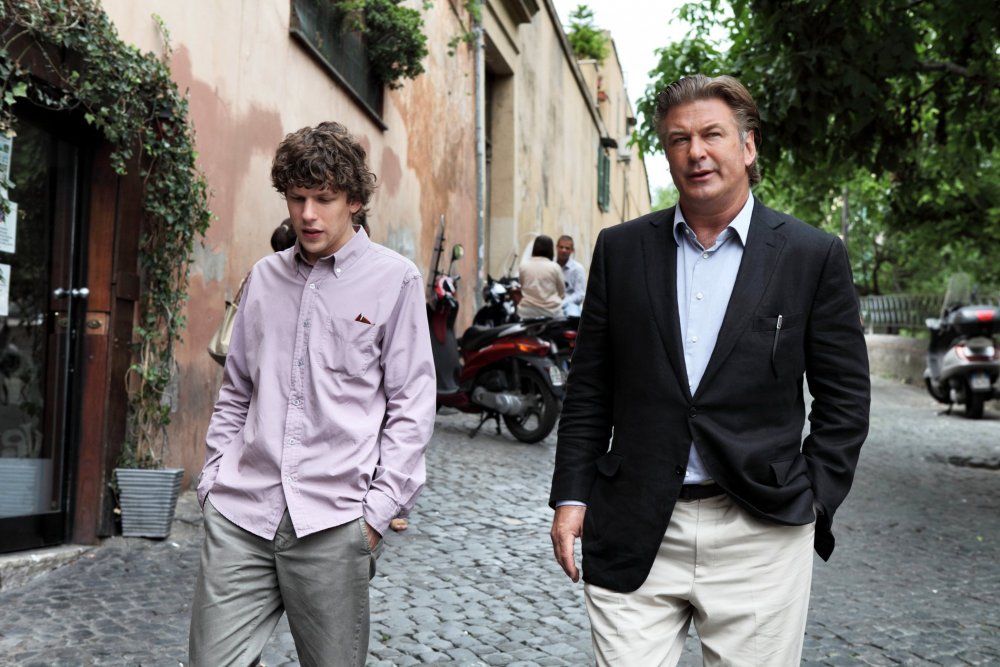
With Alec Baldwin in Woody Allen’s To Rome with Love
“It was nice to meet him and to be in the same room as him,” he says, sounding more like one of Allen’s fans than his cast members. “The most impressive thing about him, in my very limited experience of him, is just how easily directing comes to him. We would shoot a scene on which normally a director would do several different angles because they can edit the movie later. He [Allen] is able so deftly to figure out how most efficiently to shoot a scene and then, if something’s not working, immediately change it.”
Eisenberg expresses surprise at the turns his own film career has taken. “My background is in theatre. I feel like I understand that world a little better. Movies are mystifying. I don’t really know how they’re put together and why one thing becomes popular and the other thing no one sees. Theatre seems much clearer to me.”
His movie career is on the haphazard side; he’s never sure what’s coming next. By contrast, his life in the theatre is rigorously planned. His play The Revisionist, in which he co-starred with Vanessa Redgrave and which was a big hit off Broadway earlier this year, will soon be revived. He has another play for next year… and another for the year after. “I plan ahead with plays because I write them and it takes a long time to write.”
To the outside observer, Eisenberg’s workload, split between his writing and his film and theatre commitments, seems immense. Not so, he says. “Every actor I know has half the year off. The most successful work half the year – you have to do something else or you’d go crazy.”
With his performance as Mark Zuckerberg in mind, I ask about his attitude toward social media. “I have a negative opinion because I’m occasionally in the public eye,” he says of Twitter and Facebook. “Things like that terrify me because people write mean things. I don’t read them, but I suspect people write mean things. I want my privacy and that stuff doesn’t help. But it can be wonderful and creative. For somebody not in my situation, I’m sure it is wonderful. It can be used creatively like anything else – in the same way, I guess, that you can use an atomic bomb creatively…”




